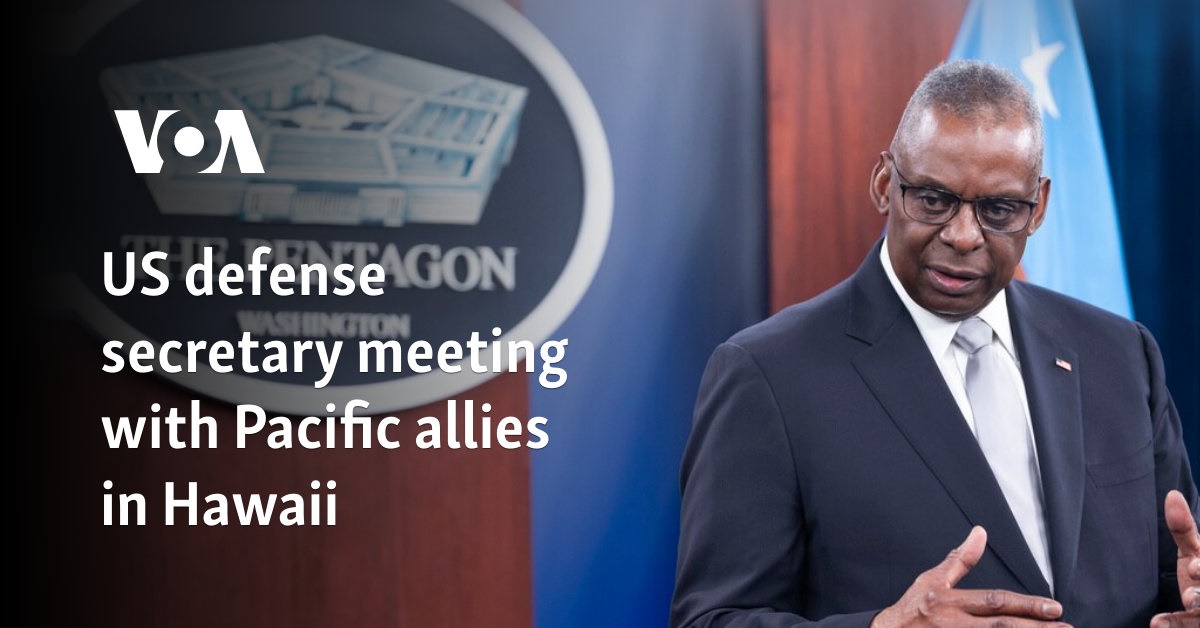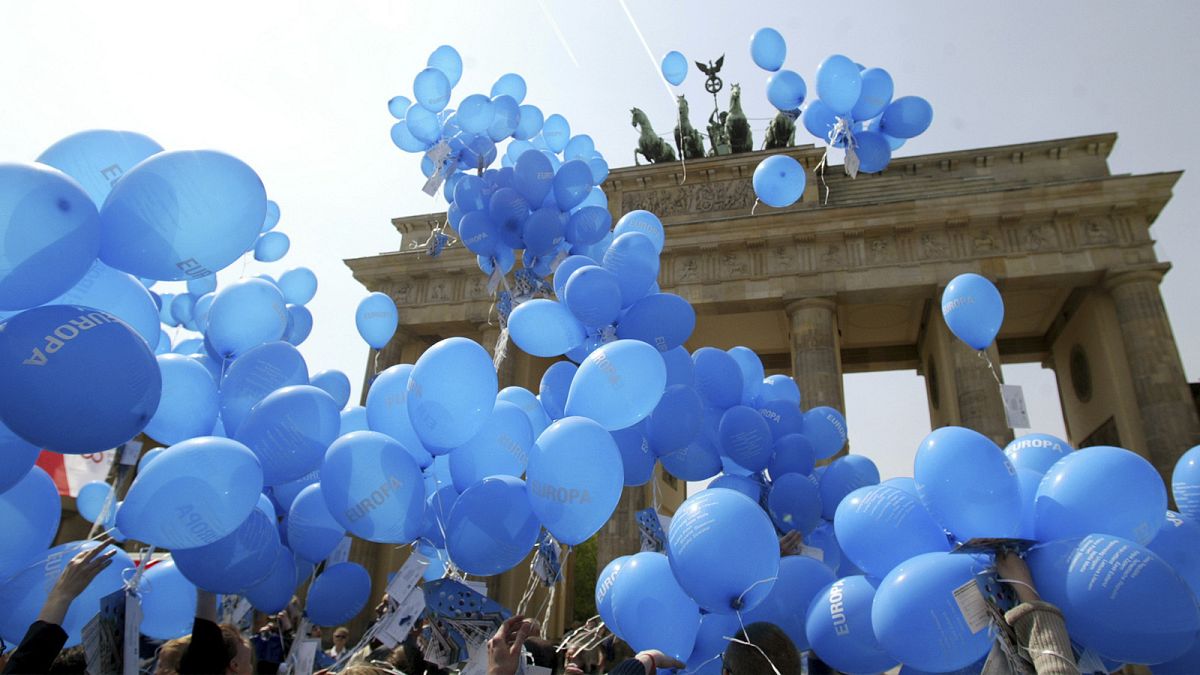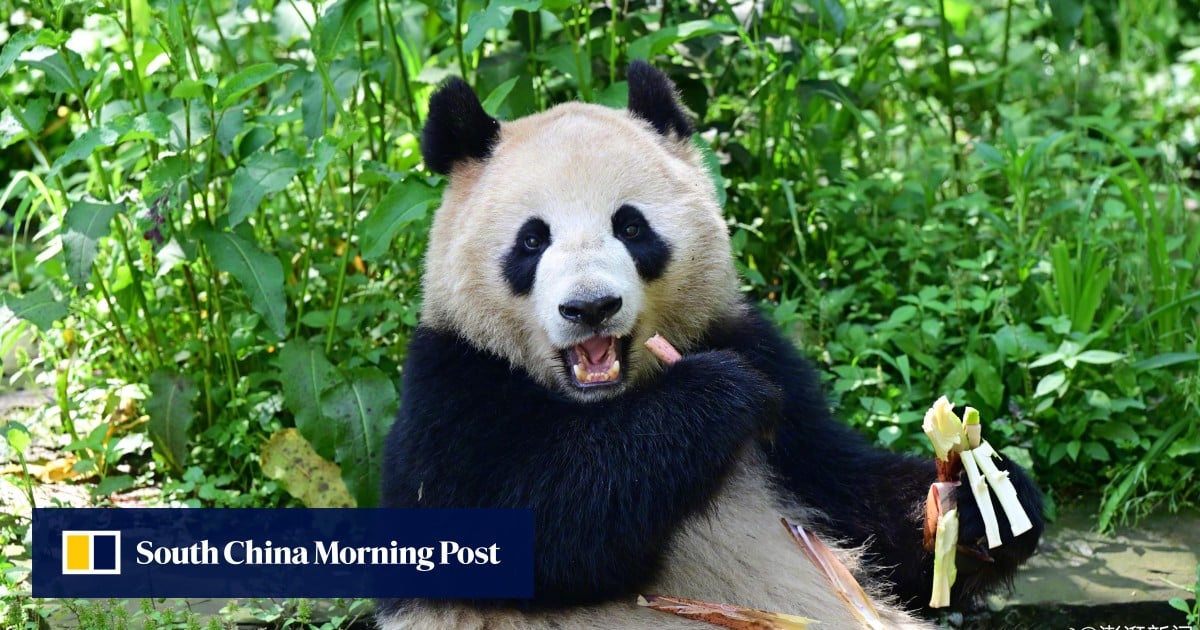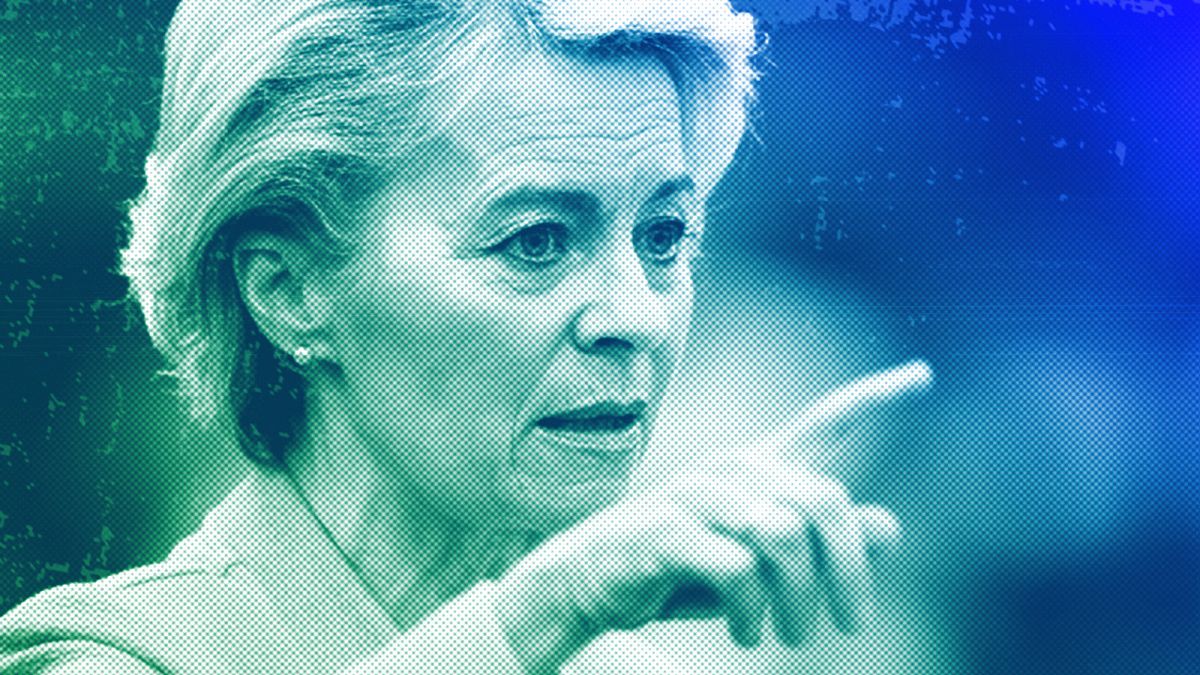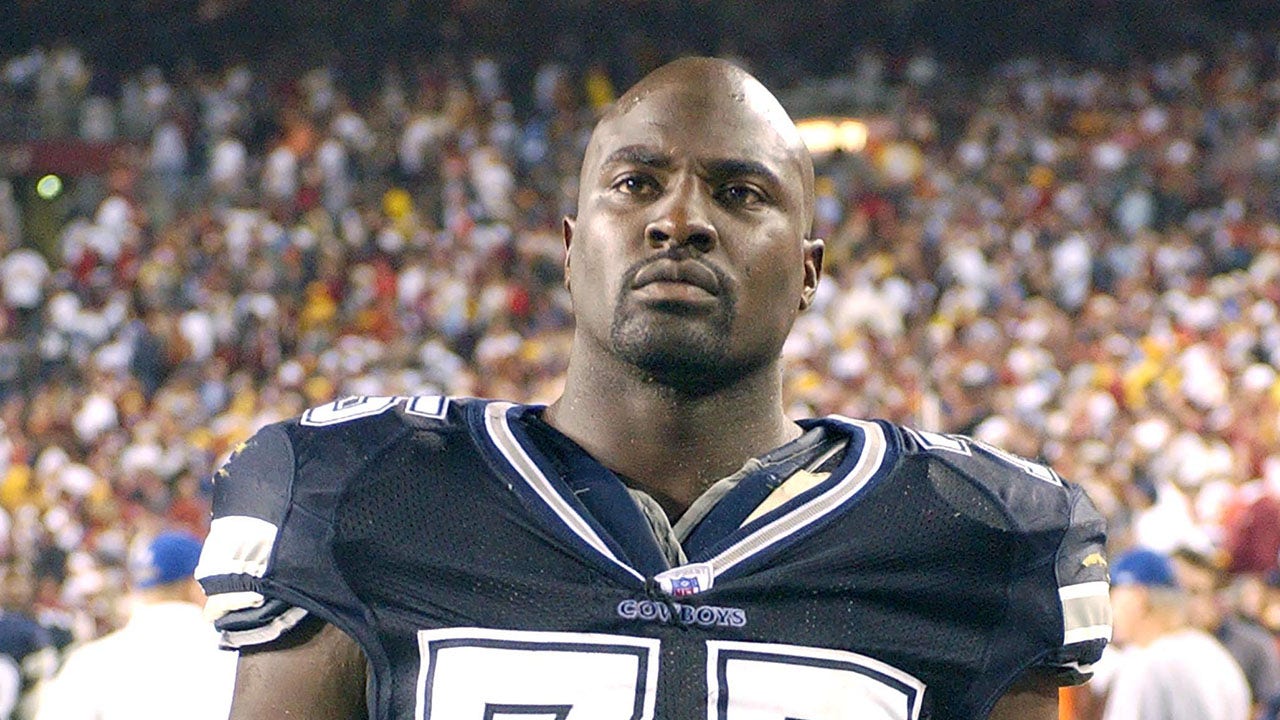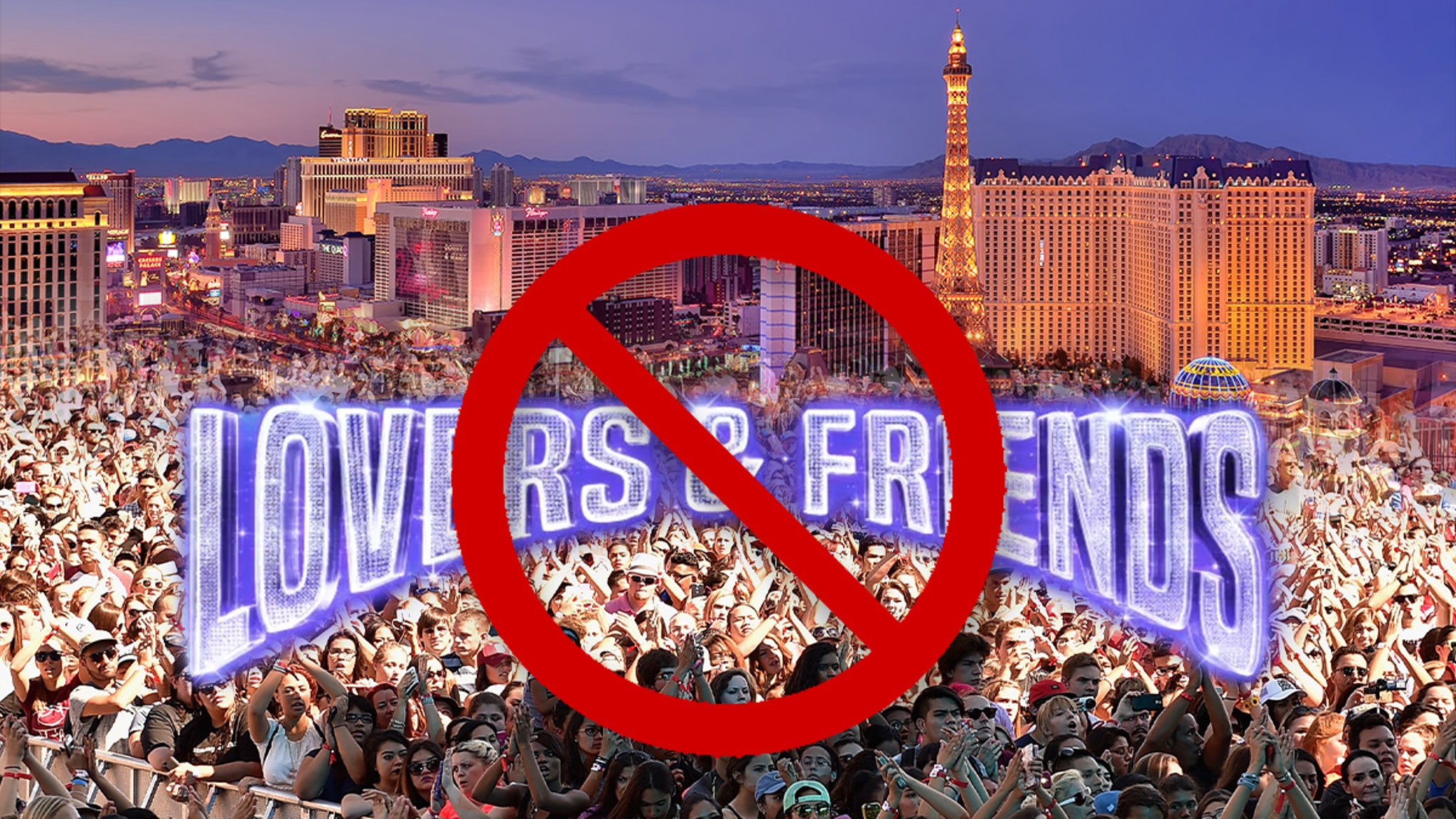World
Chinese ambassador blasts EU ‘assertiveness’ and ‘unilateral actions’
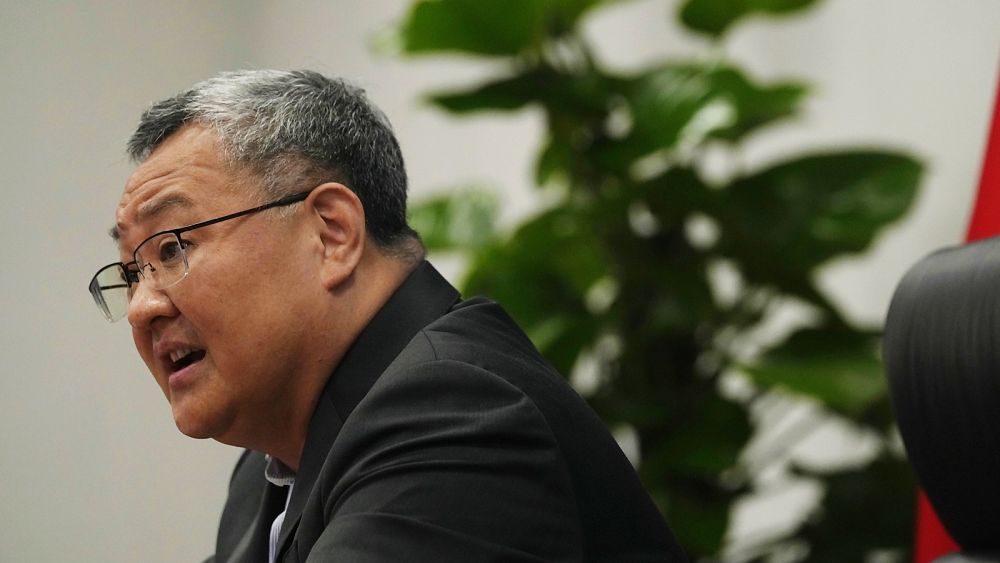
Fu Cong, China’s ambassador to the European Union, delivered on Tuesday a speech denouncing the bloc for its “assertiveness,” “unilateral actions” and “politically motivated” strategy of de-risking.
His comments refer to the growing shift in thinking in Brussels, where relations with China are now being closely examined through a lens of economic and national security, prompting policy initiatives to mitigate harmful dependencies, control the transfer of sensitive technologies and keep foreign subsidies in check.
“The scope and the speed of the changes in the EU is (sic) unprecedented as many of these measures are protectionist in nature and potentially in conflict with WTO rules,” Fu said during an event organised by the China Europe International Business School (CEIBS) and attended by Euronews.
“We are deeply concerned about the EU’s growing assertiveness and the unilateral actions as they cause disruptions to all bilateral trade and investment.”
The Chinese ambassador used his keynote speech, whose main theme was the rebuilding of mutual trust, to air an extensive list of grievances that began with the bloc’s three-pronged designation of China as a partner for cooperation, an economic competitor and a systemic rival, which Beijing has repeatedly contested since its formal introduction in 2019.
“Understanding this so-called ‘Holy Trinity’ is a mind-boggling exercise,” Fu said. “This concept is not only contradictory in itself but also inconsistent with the facts. Partner? Of course, always. Competitors? Maybe. But since when have we become rivals?”
The ambassador noted that China’s political system – an authoritarian regime under the dominant rule of the Chinese Communist Party – was not a “problem” when diplomatic relations were established in the 1970s and should therefore not be one today.
“Some would argue that China does not share EU values. If this logic goes, then the EU will have a lot of rivals because from the Middle East to Africa, from Asia to Latin America, there are many countries who obviously do not see eye to eye with Europe when it comes to values,” Fu said, using the Israel-Hamas war as an example of divergent responses on the global stage.
“This perception, unfortunately, often leads to erosion of trust. Sometimes frictions or even confrontations,” he went on. “We have already seen a worrying trend of emphasising by some groups on the rivalry part while downplaying the partner part.”
Fu then pointed the finger directly at the European Commission for promoting the strategy of de-risking and reinforcing its arsenal of trade measures to lessen the bloc’s overreliance on some Chinese imports, including raw materials, solar panels and batteries. The rethinking has also led to an anti-subsidy investigation into China-made electric cars, with reports that a similar probe could be launched into wind turbines.
“A politically motivated de-risking process runs counter to established business norms, and many would argue is a risky exercise in itself,” Fu told the audience in Brussels.
“This may well spill over and affect wider areas in the future. That would be the least welcoming news to an already struggling (global) economy.”
Europe’s response
Fu’s speech was followed by a virtual intervention of Jorge Toledo, the EU’s Ambassador to China, which served as an official retort to the complaints made by the Chinese envoy.
De-risking is “not protectionist. It is not closing the door to cooperation. Our de-risking is country-agnostic and only affects a small part of our trade,” Toledo said. “De-risking is not self-reliance, one of China’s major economic strategies for decades.”
As Fu did, Toledo used his allotted time to spell out the many disagreements and controversies that are currently upsetting EU-China relations, such as a ballooning trade deficit and the persistent barriers and obstacles that European companies face in the Chinese market, including a recent update to the anti-espionage law that grants Beijing greater powers to crack down on perceived threats to national security.
“Rebuilding trust will take time,” he warned.
Notably, Toledo raised a topic that Fu completely evaded: Russia’s aggression on Ukraine. Since February 2022, Brussels has urged Beijing to condemn the invasion and uphold the principles of the UN Charter. But President Xi Jinping has ignored the calls and instead maintained contact with Vladimir Putin on a business-as-usual basis.
“Territorial integrity has always been a key principle for China in international diplomacy. Its own territorial integrity is the reddest of the lines,” Toledo said. “Russia’s war of aggression against Ukraine is a blatant breach of this principle. It is very difficult for us to understand China’s double-standards stance.”
“I cannot emphasise enough how damaging for China’s image and reputation in Europe is the position chosen in Beijing on the Russian war in Ukraine,” he added.
The disparate perspectives projected by both envoys expose the chasm between Brussels and Beijing, which has deepened in recent years over the COVID-19 pandemic, the repression of Uyghurs in Xinjiang, tit-for-tat sanctions, tensions in the Taiwan Strait and trade restrictions in the fields of semiconductors and raw materials.
The two sides are now attempting to curb this deterioration and achieve something akin to a diplomatic reset. The last couple of months have seen several European Commissioners, including Valdis Dombrovskis, Věra Jourová and Thierry Breton, as well as High Representative Josep Borrell, visit Beijing to lay the groundwork for an EU-China summit in early December.
“I know that Chinese interlocutors and friends don’t like that we describe part of our relationship as a systemic rivalry. But as I say, it is a description and a fair one. We are indeed rivals. Our values and beliefs are different on many subjects, including democracy and the universal character of human rights,” Toledo said.
“The way in which we as Europeans view our relationship with China will probably not change any time soon, I’m afraid.”

World
‘It’s going to be worse’: Brazil braces for more pain amid record flooding

The death toll has climbed to 56 in Brazil’s southern Rio Grande do Sul state, with tens of thousands displaced.
Overpowering floods and mudslides caused by torrential rains are continuing to sweep southern Brazil, killing at least 56 people and forcing tens of thousands out of their homes, the government said.
As well as raising the death toll on Saturday, the country’s civil defence agency said rising water levels in the state of Rio Grande do Sul were straining dams and threatening the metropolis of Porto Alegre.
Triggered by storms that began on Monday, the flooding is only expected to get worse, local authorities said, as rescuers scoured the ruins of washed-out homes, bridges, and roads for missing people.
“Forget everything you’ve seen, it’s going to be much worse in the metropolitan region,” Governor Eduardo Leite said on Friday as the state’s streets were submerged.
‘Nothing could be saved’
The flooding, Brazil’s worst in 80 years, has so far affected at least 265 municipalities in Rio Grande do Sul, according to the southernmost state’s civil defence department.
It has injured at least 74 people, displaced more than 24,000, and left 350,000 with some form of property damage.
“Nothing could be saved,” said Claudio Almiro, who lost his home and possessions to the flooding.
“Many people have even lost their lives. I raise my hand to heaven and thank God that I’m alive.”
Residents in several cities and towns have been left completely cut off from the world, with no electricity or telephone access, while others have been forced to abandon their livestock.
“You don’t know if the water will continue to rise or what will happen to the animals, they may soon drown,” said Raul Metzel, from Capela de Santana, north of the state’s capital.
Five days in, as the rainfall shows no signs of letting up, four of the state’s dams are at risk of collapsing, creating the risk of a new “emergency situation”, according to civil defence officials.
Brazil’s federal government has sent aircraft, boats and more than 600 soldiers to help clear roads, distribute food, water and mattresses, and set up shelters, while local volunteers have also helped with search efforts.

‘Disastrous cocktail’
Climatologist Francisco Eliseu Aquino said the devastating storms were the result of a “disastrous cocktail” of global warming and the El Nino weather phenomenon.
South America’s largest country has recently experienced a string of extreme weather events, including a cyclone in September that killed at least 31 people.
Aquino said the region’s particular geography meant it was often confronted by the effects of tropical and polar air masses colliding – but these events have “intensified due to climate change”.
And when they coincide with El Nino, a periodic warming of the waters in the tropical Pacific, the atmosphere becomes more unstable, he said.
World
'Show solidarity': Pro-Palestinian protesters camp across Australian universities

World
China increases aggressive moves against Taiwan as island prepares to inaugurate new president
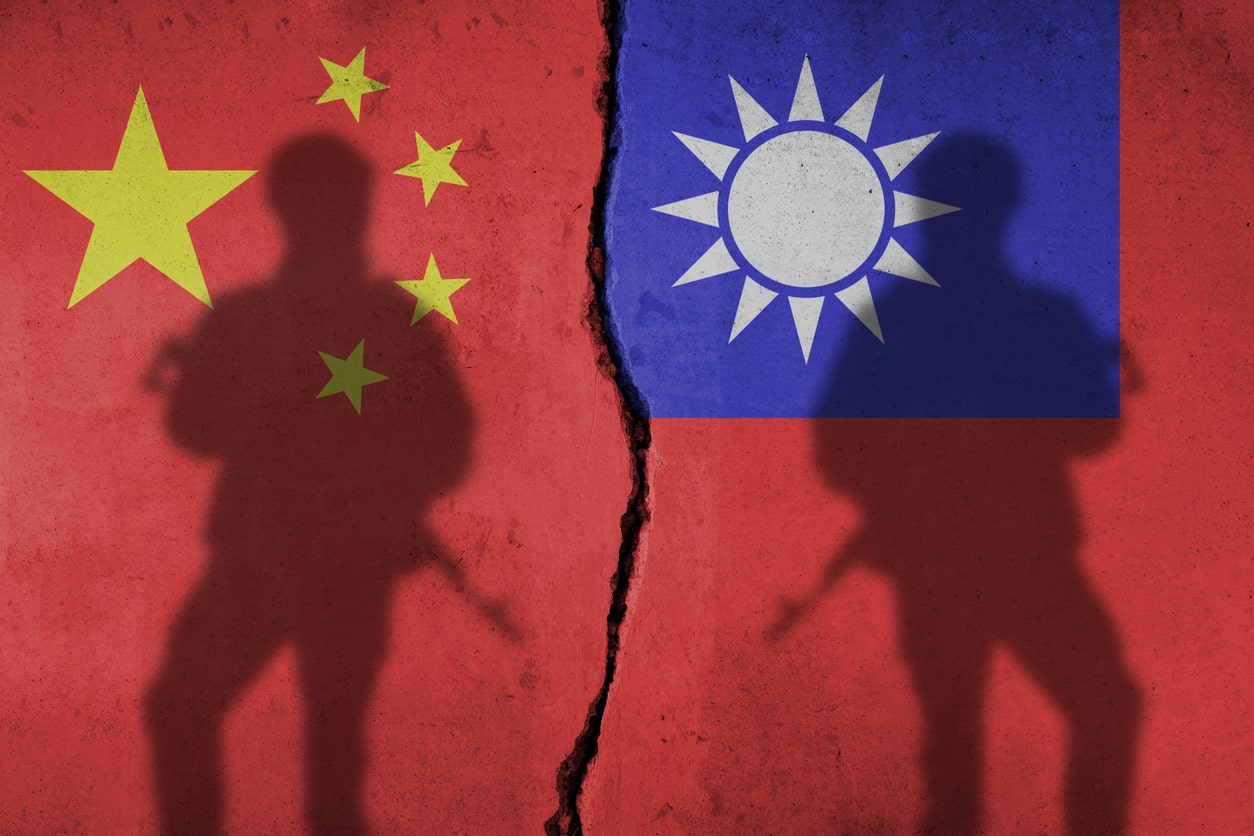
KAOHSIUNG — Virtually every day, the People’s Republic of China does something unprecedented — its coast guard briefly boarding a Taiwanese tourist boat, flying military aircraft ever closer to Taiwan or increasing harassment of Taiwanese fishing boats in the South China Sea.
“This is a problem,” says Dean Karalekas, author of “Civil-Military Relations in Taiwan: Identity and Transformation.” “Because these unprecedented actions are creating a new normal. Beijing hopes that we (the West) will sit by and watch as they take over Taiwan, just as we did when they used these same salami-slicing tactics to take over the South China Sea.”
The world began noticing more of China’s hostile actions following the visit to Taiwan by former U.S. House Speaker Nancy Pelosi in 2023, but the strategy has been in place for some time.
“China’s plan to ‘normalize’ military encroachments was planned long before Pelosi’s visit,” Taipei Times columnist and political commentator C. Donovan Smith told Fox News Digital. “The military exercises were far too complex and logistically complicated to have been planned in the short span of time between the announcement of her trip and her arrival in Taiwan.”
TAIWAN ELECTION: RULING PARTY CANDIDATE WINS TIGHTLY CONTESTED PRESIDENTIAL RACE, UPSETTING CHINA’S AMBITIONS
President-elect William Lai votes in southern Taiwan’s Tainan city Jan. 13, 2024. (AP Photo/Ng Han Guan)
Surrounding Taiwan in a mock “quarantine” and performing missile “tests” in 2023 was also intended to push Taiwanese voters toward politicians and parties more friendly to China. But, as has been the case in the last three elections here, Beijing’s ploys were ineffectual. Taiwan in January elected the incumbent vice president, William Lai, to take over from two-term President Tsai Ing-wen. Both Tsai and Lai are members of the Democratic Progressive Party (DPP).
The incoming Taiwan president has repeatedly pledged to make no changes to policies in place over the last eight years. Beijing, however, sees William Lai (Lai Ching-te) as a “splittist” and a supporter of Taiwan independence. Lai previously did voice support for independence but has tried to walk that back. China, however, does not forgive nor forget. Many political experts believe Beijing will ratchet up pressure as Lai enters office later this month.
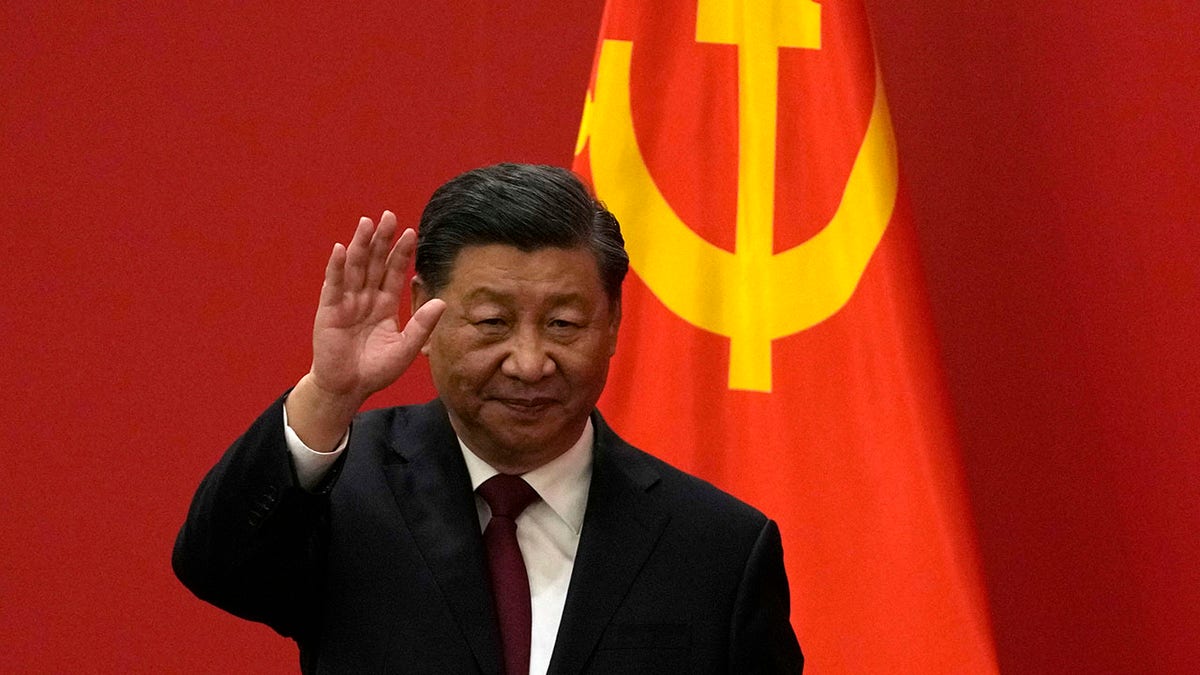
Chinese President Xi Jinping waves at an event to introduce new members of the Politburo Standing Committee at the Great Hall of the People in Beijing Oct. 23, 2022. (AP Photo/Andy Wong, File)
A recent example of China’s attempts to establish this “new normal” is changes to airspace rules. China is close to finishing a massive new airport serving Xiamen in Fujian Province. Just 6.2 miles away, however, sits the island of Kinmen, which has remained a part of the Republic of China (ROC), better known as Taiwan, since 1949.
Kinmen Airport is strategically important for Taiwan. In 2015, the two sides worked out a deal to change a flight path that was a bit too close for Taiwan’s comfort. But in February, Beijing unilaterally backed out of the deal, announcing that, from May 16, new air routes would begin operating to “further optimize airspace” around the area.
FOR CHINA’S MILITARY PLANNERS, TAIWAN IS NOT AN EASY ISLAND TO INVADE
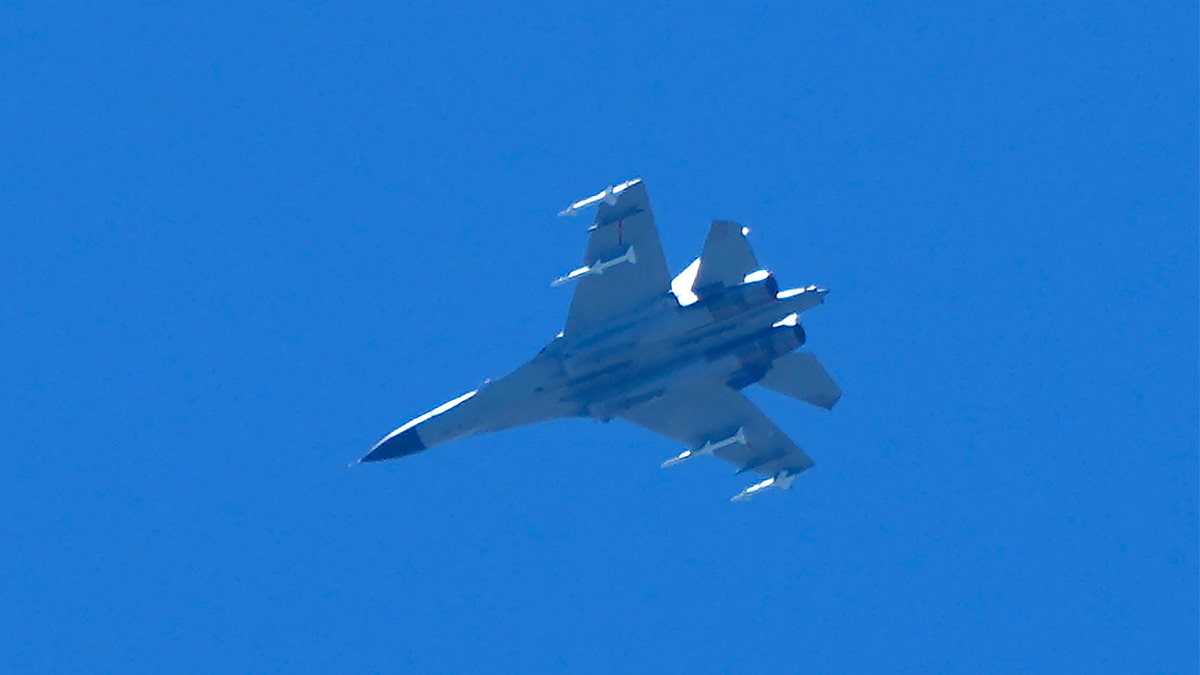
A fighter jet flies in the direction of Taiwan as seen from the 68-nautical-mile scenic spot, the closest point in mainland China to the island of Taiwan, in Pingtan in southeastern China’s Fujian Province Aug. 5, 2022. (AP Photo/Ng Han Guan)
Few China watchers think China picked the day arbitrarily, says Karalekas.
“Beijing has a pattern of testing new leaders of enemy states. They tested Bush with the EP-3E spy plane incident. They tested (then-Japanese prime minister) Naoto Kan with the Senkaku boat collision. We can expect them to test Lai by creating some sort of mini-crisis around the time he takes office on May 20.”
“I think China is really ramping up threats,” Eric Hsu told Fox News Digital. Hsu lives in southern Taiwan’s biggest city, Kaohsiung, has worked on historical restoration projects and hosts a podcast on Taiwan history.
He says he isn’t only worried about military hardware, but also what he termed, “brainwashing videos and moves by KOLs,” (Key Opinion Leaders, a term used to describe internet influencers).
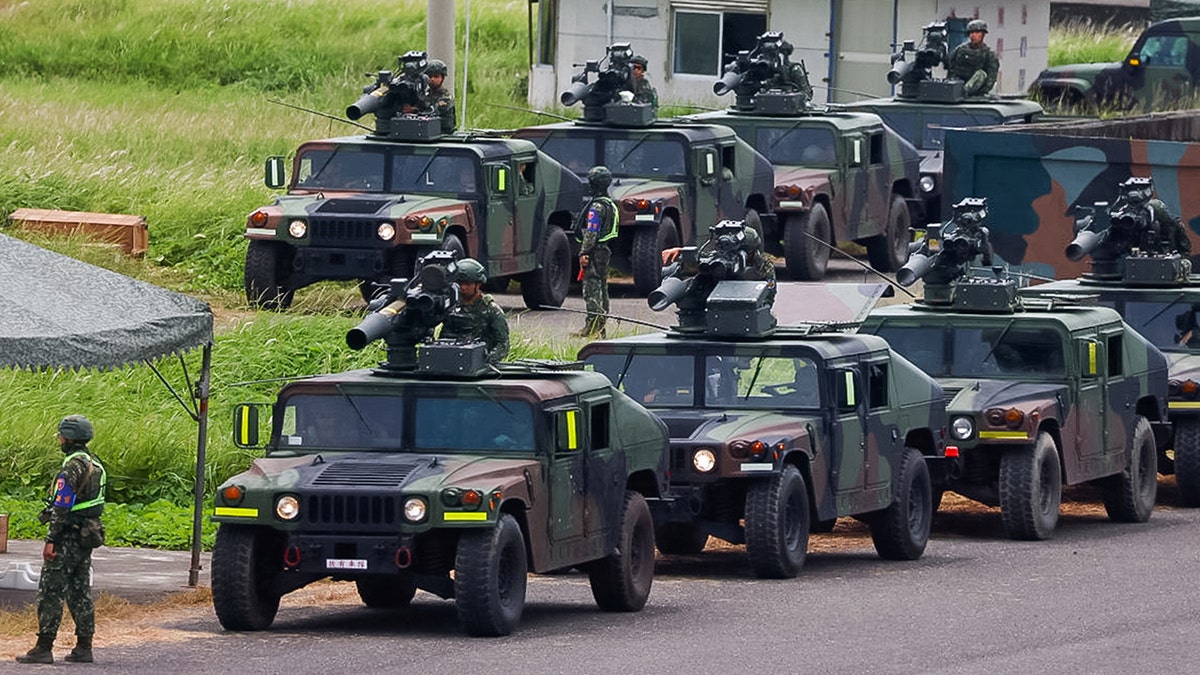
Military vehicles equipped with a U.S.-made TOW 2A missile during a live fire drill in Pingtung, Taiwan, July 3, 2023. (REUTERS/Ann Wang)
Hsu places much of the blame at the feet of local opposition parties seen by many as more friendly to Beijing. Describing the current domestic political situation, he said Taiwan faces “not just an enemy at the gate, but also enemies within.” South Taiwan is a DPP stronghold, but not everyone in the south agrees that the opposition parties are the problem.
Another resident of Kaohsiung, a self-employed businessperson and mother, Ms. Lin, thinks the DPP hasn’t been sincere in reaching out to China.
“They’ve had eight years, and now they will get at least another four,” Lin told Fox News Digital. “What Taiwan needs are brave leaders, people willing to try new solutions, and I don’t see any such people in the current DPP leadership.”
TAIWAN PRESIDENT-ELECT CHOOSES NEW FOREIGN, DEFENSE MINISTERS AS CHINA ANNEXATION THREATS INTENSIFY
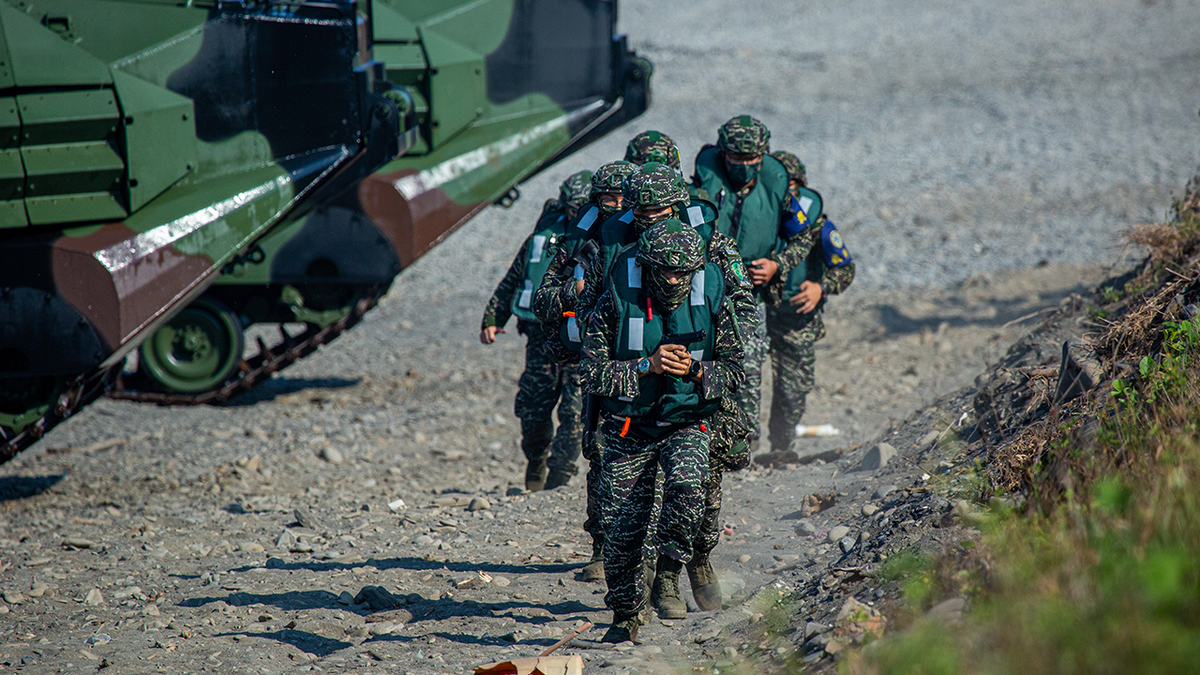
Soldiers disembark from AAV7 amphibious assault vehicles during the Han Kuang military exercise, which simulates the China’s People’s Liberation Army invading the island July 28, 2022 in Pingtung, Taiwan. (Annabelle Chih/Getty Images)
The main opposition party, the Kuomintang (KMT), denies it is “China-friendly” and instead says it is “peace-friendly.” Chinese dictator Xi Jinping has met with the KMT’s Ma Ying-jeou twice, first in Singapore in 2015 when Ma was in office as ROC (Taiwan) president. It was the first time since the end of WWII top leaders from China and Taiwan sat in the same room. Each side in 2015 chose to ignore official titles and address each other as “Mr. Xi” and “Mr. Ma.” On April 10,, “Mr. Xi” and former Taiwan president “Mr. Ma” met again, this time in Beijing.
Some experts see such meetings between the KMT and China favorably, arguing that any dialogue is good and – if nothing else – provides a way for China to save face as it continues its policy of mandatory “reunification,” which China now says may need to be achieved by force. Others in Taiwan and abroad see Ma’s meetings as straying far too close to an acceptance of the idea that Taiwan is a part of China.
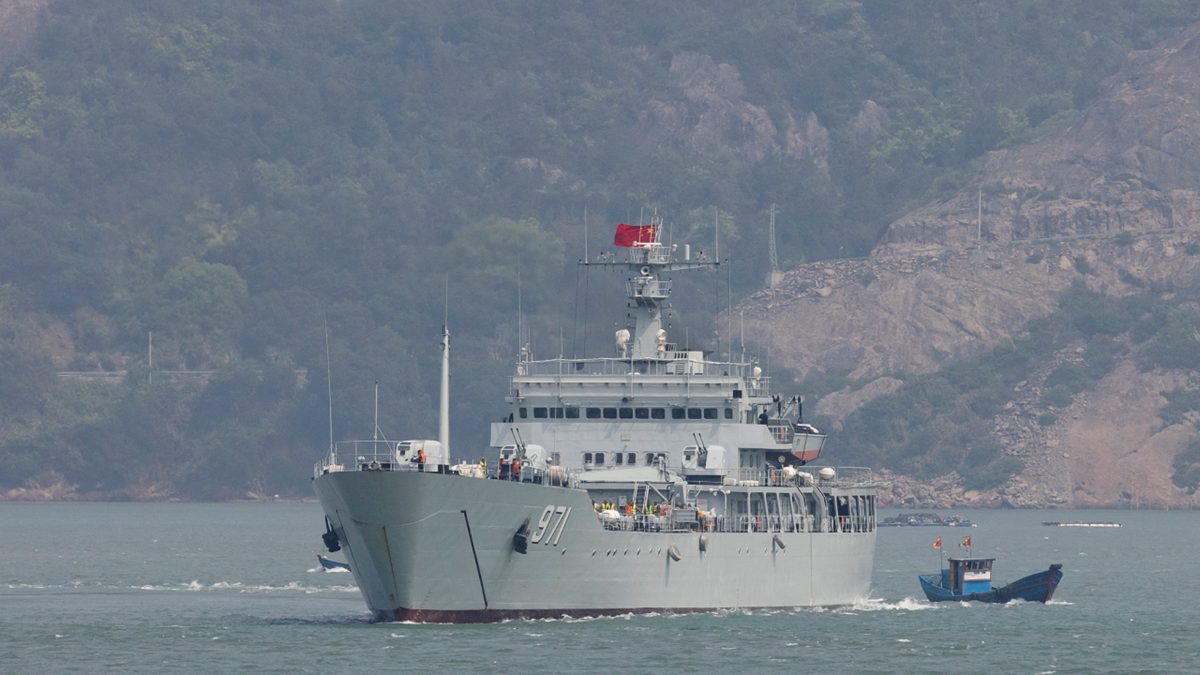
A Chinese warship sails during a military drill near the Taiwan-controlled Matsu Islands near the Chinese coast April 8. (Reuters/Thomas Peter)
As it stands, the ruling DPP says it’s content with the status quo, including keeping Taiwan’s official name, the Republic of China. The KMT is generally more in favor of talks with Beijing under a mutual respect “consensus” idea that boils down to agreeing that both sides are “China,” but each side is free to interpret what this “one China” means.
The problem with the KMT’s thinking, central Taiwan-based newspaper columnist and political commentator Michael Turton told Fox News Digital, is that “Xi’s goal is the complete subjugation of Taiwan, just like Hong Kong. Two of China’s ambassadors abroad have already indicated that Taiwanese opposed to Beijing rule will be shipped off to concentration camps. Given this goal, how can there ever be dialogue with mutual respect?”
-

 News1 week ago
News1 week agoLarry Webb’s deathbed confession solves 2000 cold case murder of Susan and Natasha Carter, 10, whose remains were found hours after he died
-

 News1 week ago
News1 week agoFirst cargo ship passes through new channel since Baltimore bridge collapse
-

 World1 week ago
World1 week agoHaiti Prime Minister Ariel Henry resigns, transitional council takes power
-

 World1 week ago
World1 week agoSpanish PM Pedro Sanchez suspends public duties to 'reflect'
-

 World1 week ago
World1 week agoUS secretly sent long-range ATACMS weapons to Ukraine
-

 News1 week ago
News1 week agoAmerican Airlines passenger alleges discrimination over use of first-class restroom
-

 Movie Reviews1 week ago
Movie Reviews1 week agoHumane (2024) – Movie Review
-

 Education1 week ago
Education1 week agoVideo: Johnson Condemns Pro-Palestinian Protests at Columbia University
